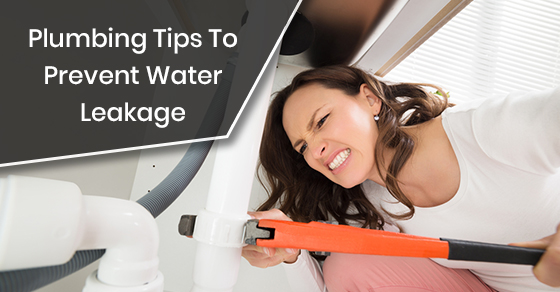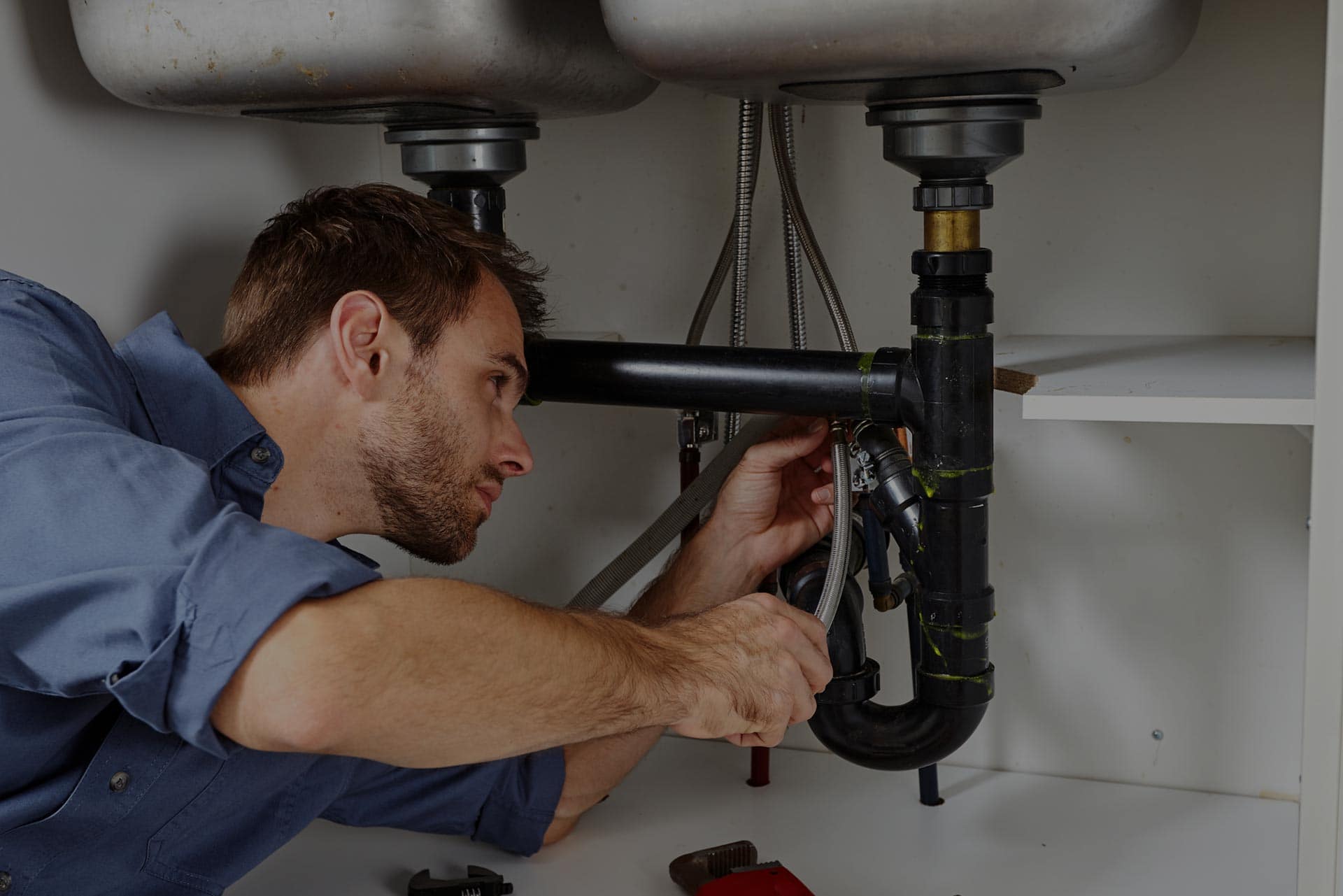
08 Oct Top Plumbing Tips to Prevent Water Leakage
You may be sitting at home enjoying your favourite television show or hobby when all of a sudden you hear an odd hissing sound. Perhaps it is something outside, or your HVAC unit running a little exhausted. However, the noise continues. Eventually, you decide to investigate. The sound may be difficult to locate, but eventually, you end up inside of your bathroom, and it becomes immediately clear what is making the sound. You’re standing in at least a foot of water. One of your pipes has burst.
No doubt you’ll experience a great deal of panic. After all, the water could be touching appliances or nearly touching electrical cords or devices. This can even make the situation deadly. You’ll also be faced with all of the water damage due to the settling water. Let’s not forget about the clean-up either, as parasites, bacteria, viruses, and other waterborne pathogens can be left behind once the water is drained.
In short, you will have quite the mess on your hands. This mess can be quite costly, too. However, it’s important to note that water leakage is completely preventable. Take a look at some of these tips to prevent pipes from bursting.
- Unclog pipes frequently
One of the best plumbing tips you can follow is to ensure that your pipes are regularly unclogged. You can choose to do this yourself by buying a chemical drain cleaner. These harsh chemicals break down hair and other organic material that may be clogging up your pipes. They’re quite effective, too, except that they also run the risk of wearing down your pipes over time. Eventually, brittle pipes can burst, and you’ll be left with the same problem anyway. As such, you can most certainly buy a drain cleaner from your local store and use it, but you should only do so when it is absolutely necessary.
Instead, you may want to try and prevent the problem from occurring in the first place. They have hair traps and other drain traps that can easily fit within your drain. These act as filters that keep large items that might otherwise eventually clog your pipe from entering the drain in the first place. All you need to do is regularly remove the trap and empty it out, then replace it in your drain. Not only does this prevent the use of harsh chemicals, but it’s an effective tool to keep your pipes healthy. It’s also quite cheap.
In the kitchen, it’s probably common for you to wash-off plates that have food residue left on it. This residue can end up clogging your drain just the same. It can stick to the sides of your pipes and build up until nothing can pass it. An effective method here is to ensure that when you’re rinsing off plates that you do so with a drain that has a disposal unit. This pipe and device are literally made to chop up the food and prevent drain blockages.
- Know your water
If you drink from a filter, then you are likely aware that your water source isn’t the best. Water that contains a high amount of minerals can really wear down the life of your pipe. It corrodes the metal to the point where the pipe simply bursts. To prevent that happening, you may want to consider having your pipes replaced. This is especially important for those who have copper pipes, as you are the most likely to receive the brunt of a wear-down from the minerals in the water. You can have your pipes replaced with PVC pipes, which will not corrode the same way.
You might also consider regularly testing your water for its pH. This can help you determine just how bad your water is — for you and your pipes. In some cases, you might want to install a water softener to help reduce the number of minerals that flow through your pipe. You’ll also want to practice good water usage. By letting your water sit too long, especially in horizontal pipes, you’re allowing the minerals in the water to eat away at the pipe.
You can alleviate this problem by running the water often. This is an especially important method to keep in mind during the winter months. For pipes that are exposed to the outdoors, the bitter cold can play havoc on them. This is made even worse if there is water in those pipes as the water can freeze up. When you turn the water on, you’re allowing pressure to build inside the clogged part of your pipe where the frozen water is located. Too much pressure and you’re faced with a burst pipe. By running the water frequently during the colder months, you can keep that water from freezing inside of the pipe.
- Keep pressure low
Another aspect to consider is the pressure of your water. While having a lot of pressure in the shower may feel like a wonderful thing, it can actually damage your pipes. Water pressure should typically be around 60 psi. Either you or a hired professional can help you to adjust the water pressure so it is at an appropriate level.
The Professional Touch
While you can attempt to stay on top of the regular maintenance that your plumbing needs, life is likely to get in the way. As such, you will probably need someone who can perform the tasks for you effectively and efficiently. Make sure you find a professional, qualified plumber who you can trust.
For more information on plumbing best practices, please call HMS Plumbing & Mechanical at 416-894-9490 or contact us here.



